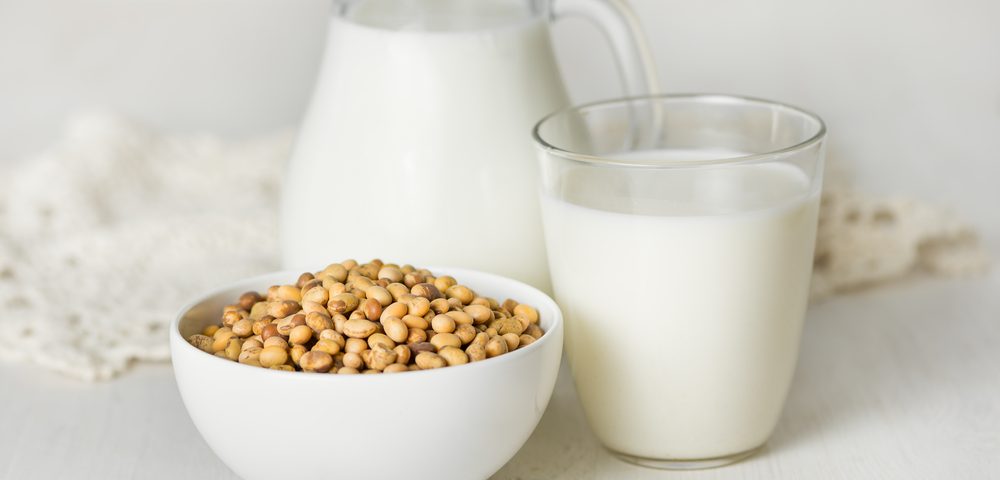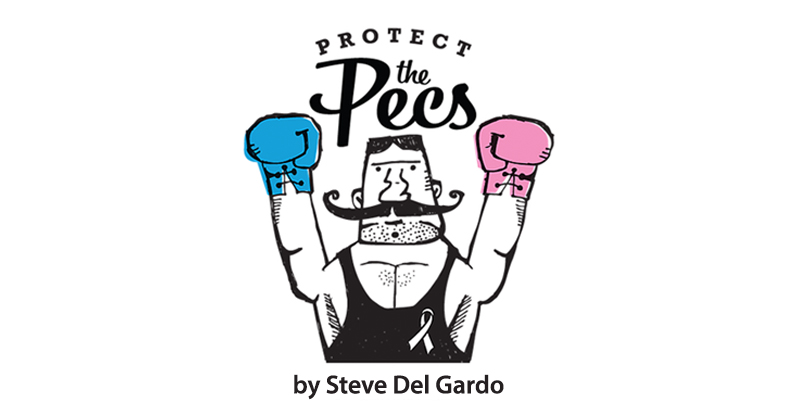Before you start reading this article, I just want to remind everyone that I am not a doctor or a researcher. This is just my opinion about soy and its possible link to breast cancer.
For the past several years, we have been hearing how soy is so awesome for you, and soy this, soy that. I am here to tell you that soy isn’t all that. Soy is that new friend we all like in the beginning. It is fun to be around, but you soon realize that soy is a bit too much, kind of full of itself. Always trying to muscle its way into your family’s life.
Then you realize that soy isn’t that great. You start getting to know soy more, and realize it is bad for you. Yep, I said it: “Soy sucks!” I avoid soy like a bad ex-girlfriend. Fun in the beginning, but crazy in the end. See ya!
Anyway, the reason I am talking ill of soy is because it is likely the very reason I got breast cancer. Before I was diagnosed, I was drinking soy protein milkshakes twice per day for more than a year while I was exercising. Apparently, soy mimics estrogen and increases estrogen levels in our bodies. My cancer was estrogen receptive. (I had high levels of estrogen.) By the way, there is no history of breast cancer in my family and I tested negative for the BRCA gene (no mutations).
Soy by-products are in our food supply. There are certain fast-food restaurants that have been using soybean as the base for their burgers for years. I used to work at one when I was 16 (32 years ago), and can attest that the burgers were all soybean based. That was a long time ago, and I hope they’ve changed. But just think how many burgers you may have eaten over the course of 32 years. A lot! So, over time, estrogen levels will increase moderately, right? Maybe. Again, more research is needed. Researchers have used mice to determine this.
According to Otis Brawley, MD, chief medical officer with the American Cancer Society (in a 2011 response published on CNN.com):
“While large population studies suggest a benefit from high levels of phytoestrogens in the diet, animal studies have noted that extremely high amounts of phytoestrogens may actually promote breast and uterine cancer growth.”
Here is another interesting fact from Dr. Brawley:
“Even among the soy products, there are differences in terms of amount of phytoestrogen. One survey of foods found that 100 grams of flaxseed had nearly four times as much phytoestrogen as 100 grams of soybeans; 100 grams of soybeans had three times as much phytoestrogen as 100 grams of tofu, and 33 times as much as 100 grams of soy milk.”
Soy is found in many foods and drinks these days. While it is a great source of protein, soy also contains isoflavones, which are weak estrogen-like particles found in plants, as Breast Cancer.org notes. Research studies have been mixed about whether they, indeed, cause breast cancer. One study published in the Journal of the National Cancer Institute in 2014, however, found that soy protein did turn on certain cancer genes that could lead to cancer growth in certain people.
Soy may decrease risk in women
Another study, reported by the Mayo Clinic in May 2016, showed that soy may actually decrease the risk of breast cancer in women. It examined food intake questionnaires from more than 70,000 Chinese women who were participating in the Shanghi Women’s Health Study. Findings showed that soy intake lowered women’s risk of getting breast cancer, and the greatest benefit appeared in premenopausal women.
However, this risk reduction appeared to vary depending on cancer receptor type, and does not hold true for women with HER+ tumors, where soy appears to have no effect. Still, the authors concluded that, in align with the American Institute for Cancer Research, one-to-two servings of soy a day may actually decrease the risk of breast cancer in women.
There are many such articles on the internet with conflicting reports of soy’s benefits or risks regarding breast cancer. What is striking is that all these studies and articles mention the possible link only in women; there is no mention whatsoever of the risk in men. In fact, if you type male breast cancer and soy intake into a search engine box, you’ll get the same exact links that exclude men.
While isoflavones may have a weak estrogen effect in women, does the same hold true in men who have much lower levels of natural-circulating estrogens?
Might something with a weak estrogenic effect have a stronger influence in the breast tissue of men, whose bodies are not adapted to the same estrogenic environment as women?
We do not know, because these studies focus on women and completely ignore men who have the disease.
And we may never know because no one is pushing research on male breast cancer, and finding if this link is clinically significant. We raise questions, and the scientific community remains silent as more than 400 men die every year of breast cancer. Aren’t these men worth the knowledge that might prevent others from dying?
As I’ve said, more research needs to be done. For me, I am staying away from soy milk and soy products. I know first-hand what it did to me. All, I can say to those who are eating/drinking soy, please do so in moderation and be aware of your family history of breast cancer. I recommend drinking almond milk or coconut milk. Both do the body good.
***
[My name is Steve Del Gardo. I am a breast cancer survivor. Warrior of Life. Adventure Seeker. I am who I am. Read my story at www.protectthepecs.org].
Note: Breast Cancer News is strictly a news and information website about the disease. It does not provide medical advice, diagnosis, or treatment. This content is not intended to be a substitute for professional medical advice, diagnosis, or treatment. Always seek the advice of your physician or other qualified health provider with any questions you may have regarding a medical condition. Never disregard professional medical advice or delay in seeking it because of something you have read on this website. The opinions expressed in this column are not those of Breast Cancer News, or its parent company, BioNews Services, and are intended to spark discussion about issues pertaining to breast cancer.



This is really old research. The post 2011 research shows that Soy actually reduces the incidence of breast cancer and contains molecules that can repair certain genes damaged in breast cancer. Please update your article as it is causing alarm where none is needed.
Thank you for your comment. There is still some controversy that exists in this regards. If someone has a concern about their personal risk of breast cancer, I advise them to discuss it with their own personal physician. Also, there are newer studies online since 2014 that has shown that it does increase the size of the tumor in a group of women. Plus it is still controversial. More research needs to be done. For personal reasons, my soy intake did not reduce my breast cancer, it helped increase the levels. I was diagnosed in 2012. Thanks again for your comment. Have a good day!